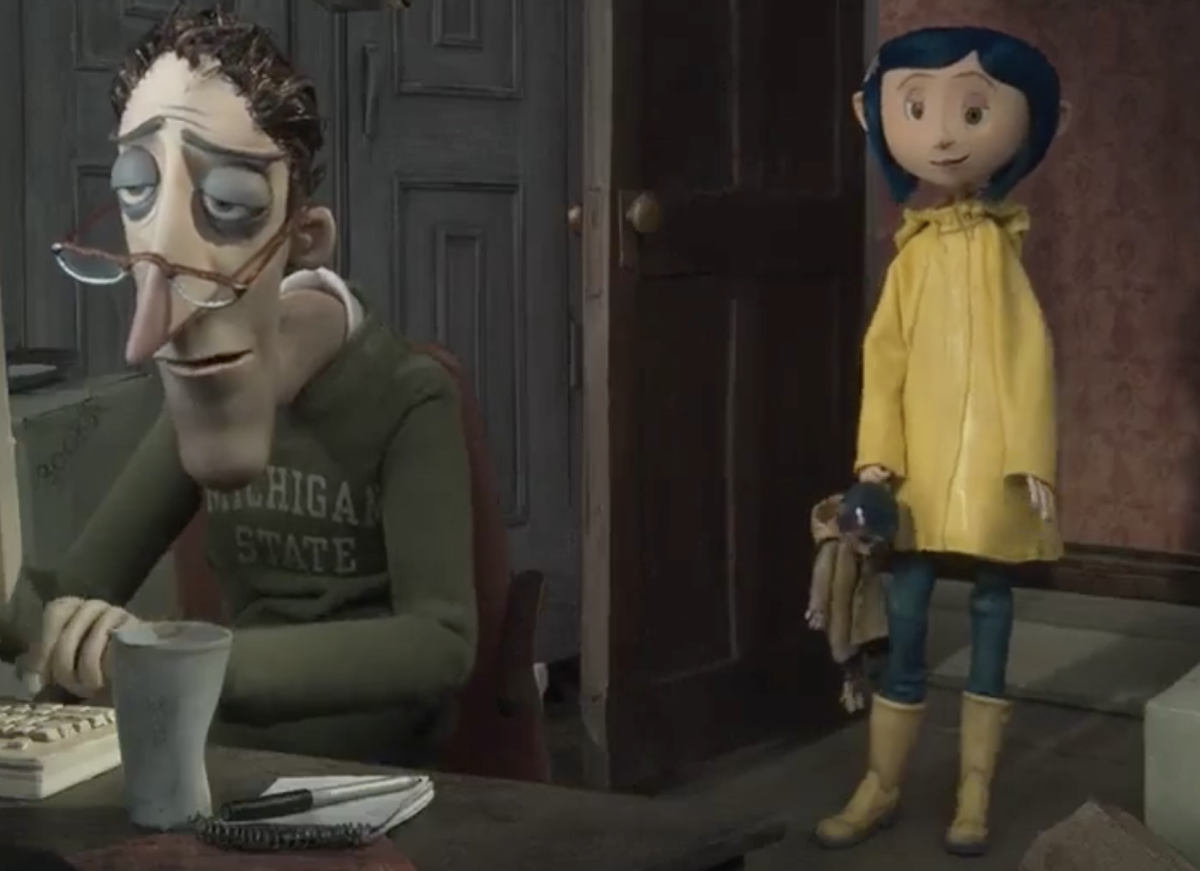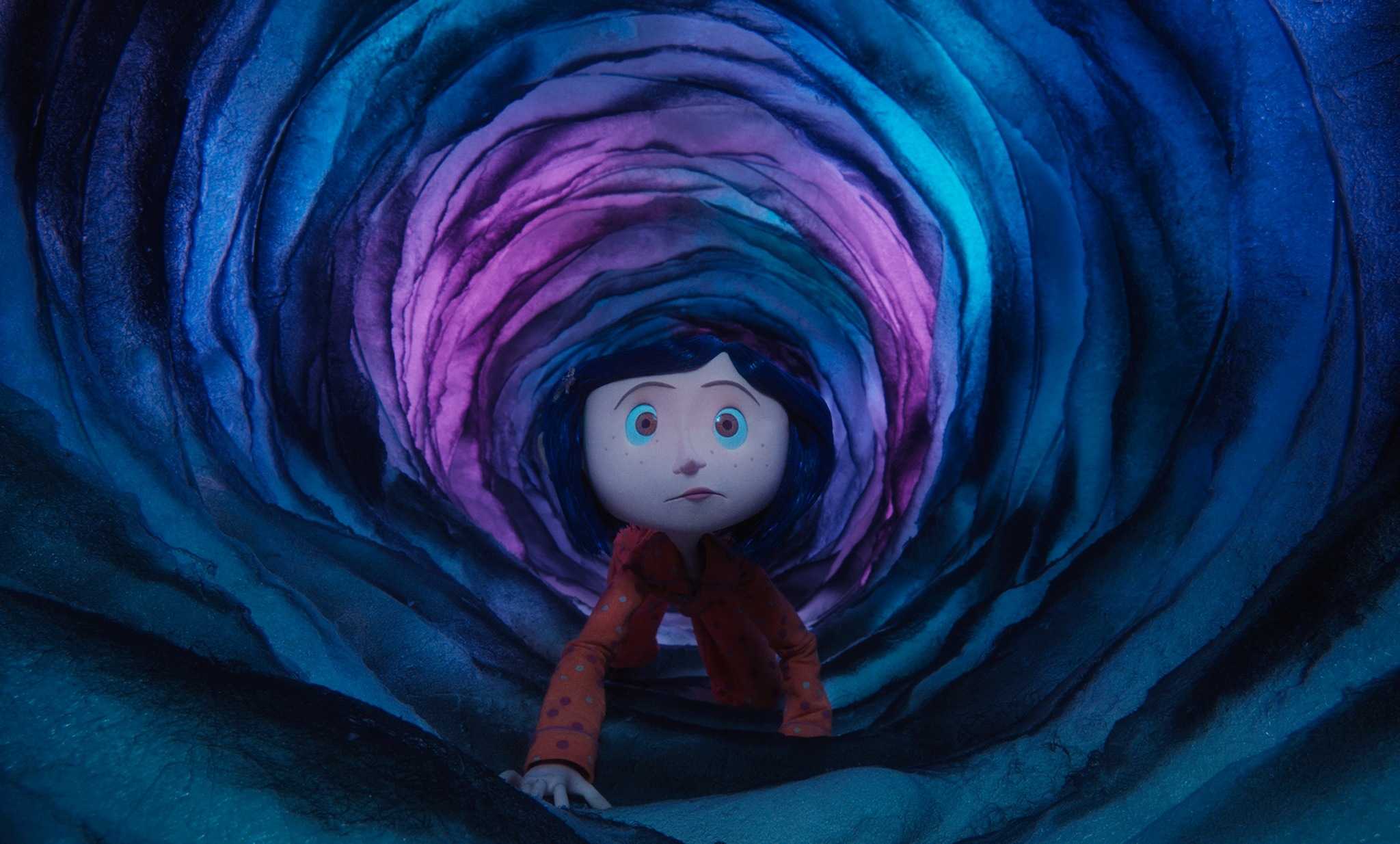Stars: 5/5
“Coraline” is the only movie I have paid good money to see in theaters and left before it was over. Not because it was bad by any means, but because I was eight years old and they had button eyes and bug themed furniture and I had a very delicate psyche. In fairness, I didn’t have the cultural literacy to pick up on the foreshadowing and subtext that artfully builds to the “horror.”
It took the scavenger hunt for the eyes of kids past through the twistedly nightmarish version of the house to say, “hey, I’m okay with leaving if you guys are,” with fear in my eyes to my mom and younger sister. Upon revisiting it as a marginally more mature adult, I think it’s a masterpiece and a painstakingly attentive medium of storytelling unappreciated in youth.
Based on the novel by Neil Gaiman, “Coraline” reaps the benefits of visually portraying highly detailed scenes and fleshed out characters from eloquent writing. The film leans into the lyrical beauty of songs, riddles and harmonious sentences of poetic prose and dialogue from the book. From the other father’s introductory piano song to the acrobatic display and the children’s foreboding rhymes, powerful wordsmithing is a major component.
Succinct storytelling is uncommon in children’s media nowadays where nothing can be implied. It’s hard to “show not tell” when nothing short of point-blank stating something will get the meaning across to an audience immune to nuance — the young and culturally inexperienced.
“Coraline” demonstrates appropriate instances and expectations of inference for its viewers. It doesn’t show us Coraline eating lunch; it shows food splayed out in front of her then cuts to her burping and leaving the kitchen. Similarly, subtle adaptations from the real waking world to the darkly fantastical realm beyond the wallpaper door reward a watchful eye.
The weakest link of “Coraline” is Coraline. She is extraordinarily bratty and exhibits no redeeming characteristics apart from her curiosity that drives the plot. She treats her only non-feline friend Wybie — short for Whyborn, among the most depressing names in existence — like garbage, constantly belittling him and his actions that ultimately save her worthless whiny life. The fact that her “ideal version” of him has a stitched-up mouth is telling of her friendliness.
“Coraline” is a children’s movie but masterfully crafted with fine details woefully ignored by its target audience. The limitlessness of stop motion claymation lends itself to an abstract escapist concept like Coraline’s world hopping quite well. It can be a bit jarring at first if the young viewer has thus far avoided similar works like Tim Burton’s “The Nightmare Before Christmas” and “The Corpse Bride,” but once the stigma is conquered that collection is surely next on the list.
Its influence on pop culture persists into the meme realm, recently spawning this legendary format.






